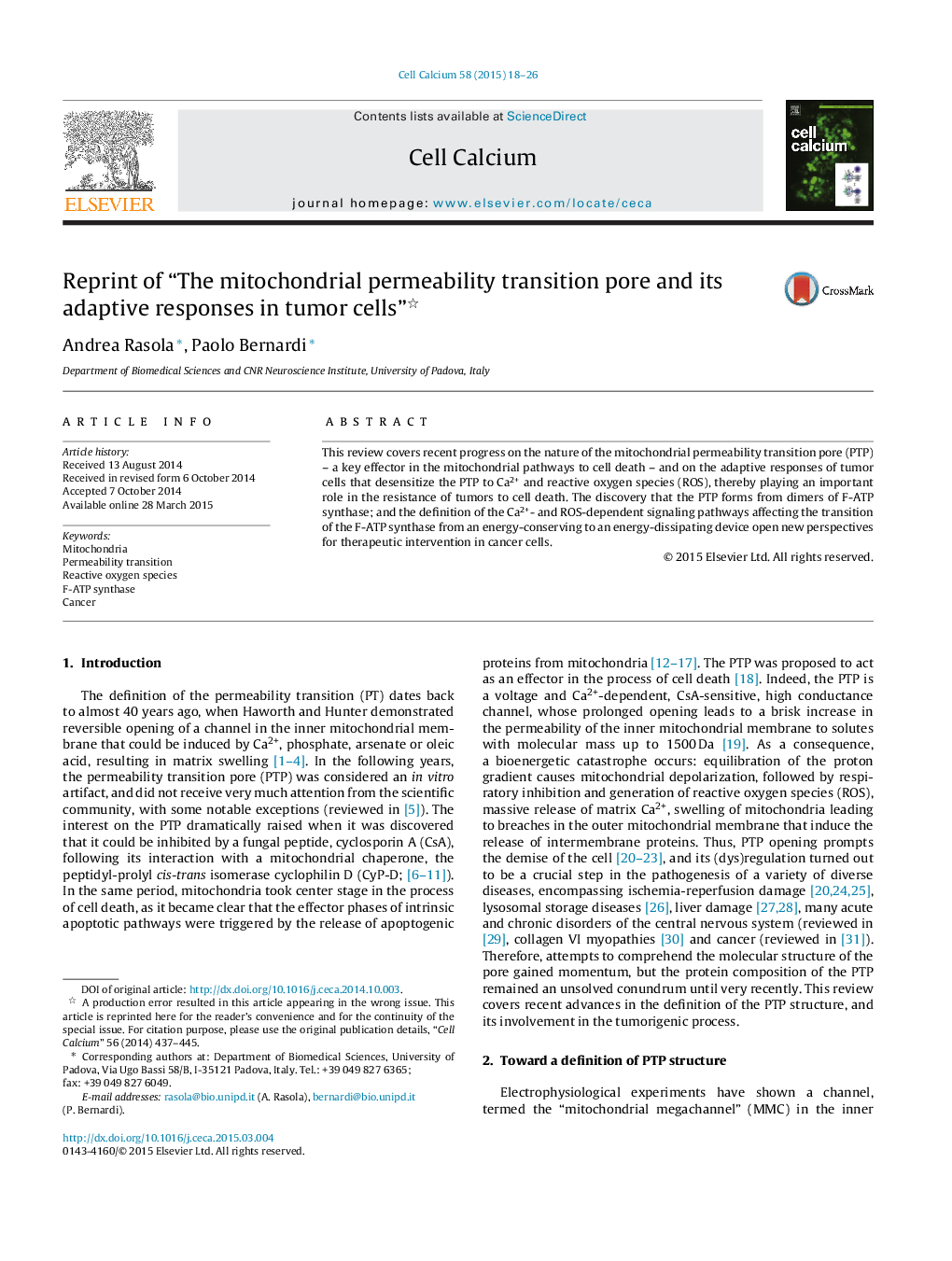| Article ID | Journal | Published Year | Pages | File Type |
|---|---|---|---|---|
| 2165904 | Cell Calcium | 2015 | 9 Pages |
•The mitochondrial permeability transition pore (PTP) is a key effector in the pathways to cell death.•The PTP forms from F-ATP synthase and is regulated by several signaling pathways.•Tumor cells desensitize the PTP to Ca2+ and reactive oxygen species increasing their resistance to death.•The PTP is a target for anticancer chemotherapeutics.
This review covers recent progress on the nature of the mitochondrial permeability transition pore (PTP) – a key effector in the mitochondrial pathways to cell death – and on the adaptive responses of tumor cells that desensitize the PTP to Ca2+ and reactive oxygen species (ROS), thereby playing an important role in the resistance of tumors to cell death. The discovery that the PTP forms from dimers of F-ATP synthase; and the definition of the Ca2+- and ROS-dependent signaling pathways affecting the transition of the F-ATP synthase from an energy-conserving to an energy-dissipating device open new perspectives for therapeutic intervention in cancer cells.
Graphical abstractFigure optionsDownload full-size imageDownload as PowerPoint slide
